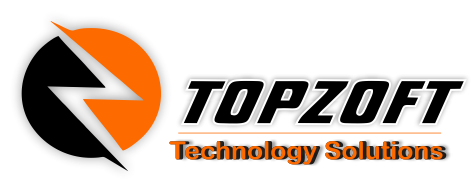Introduction:
In recent years, blockchain technology has emerged as a revolutionary force with the potential to transform industries, disrupt traditional business models, and revolutionize the way we exchange value and information in the digital age. Yet, for many, the intricacies of blockchain remain shrouded in mystery. In this comprehensive guide, we embark on a journey to unravel the complexities of blockchain technology, exploring its fundamental principles, underlying mechanisms, and diverse applications across various sectors.

1. Fundamentals of Blockchain Technology:
At its core, blockchain is a decentralized, distributed ledger technology that enables the secure and transparent recording of transactions across a network of computers. Each transaction is cryptographically linked to the preceding transaction, forming a chain of blocks that are immutable and tamper-resistant. This decentralized architecture eliminates the need for intermediaries, such as banks or financial institutions, and ensures trust and transparency among participants.
Key components of blockchain technology include:
- Distributed Ledger: A decentralized database shared across multiple nodes or computers.
- Cryptography: Algorithms used to secure and authenticate transactions, ensuring data integrity and confidentiality.
- Consensus Mechanisms: Protocols that enable nodes in the network to agree on the validity of transactions and maintain consensus without the need for a central authority.
2. Applications of Blockchain Technology:
Blockchain technology has a myriad of applications across various industries, revolutionizing processes, enhancing transparency, and driving innovation. Some key applications include:
- Cryptocurrencies: Perhaps the most well-known application of blockchain technology, cryptocurrencies like Bitcoin and Ethereum enable peer-to-peer transactions without the need for intermediaries, providing financial inclusion and empowerment to users worldwide.
- Supply Chain Management: Blockchain technology can be used to track the provenance and movement of goods across the supply chain, ensuring transparency, traceability, and authenticity of products from origin to destination.
- Smart Contracts: Smart contracts are self-executing contracts with the terms of the agreement directly written into code. Leveraging blockchain technology, smart contracts automate and enforce the execution of contractual agreements, eliminating the need for intermediaries and reducing transaction costs.
- Identity Management: Blockchain technology can provide a secure and decentralized solution for digital identity management, enabling individuals to control and manage their identity data securely while protecting against identity theft and fraud.
- Healthcare: In the healthcare sector, blockchain technology can facilitate secure sharing and interoperability of electronic health records (EHRs), streamline insurance claims processing, and ensure the integrity and confidentiality of patient data.
3. Challenges and Considerations:
While blockchain technology holds immense promise, it is not without its challenges and considerations. Some key challenges include scalability, interoperability, regulatory compliance, and energy consumption. Additionally, concerns around privacy, security, and governance must be addressed to realize the full potential of blockchain technology in various applications.
Furthermore, the rapid pace of technological innovation and evolving regulatory landscape necessitate ongoing research, collaboration, and adaptation to overcome barriers and unlock the transformative potential of blockchain technology in the years to come.
Conclusion:
As we continue to explore the vast possibilities of blockchain technology, one thing remains clear: its potential to revolutionize industries, empower individuals, and foster trust in the digital economy is unparalleled. By understanding the fundamental principles, exploring diverse applications, and addressing challenges and considerations, we can harness the power of blockchain technology to drive innovation, foster collaboration, and create a more transparent, secure, and decentralized future for all.
As blockchain technology continues to evolve and mature, the opportunities for disruption and innovation are limitless. By staying informed, embracing experimentation, and collaborating across industries, we can unlock the full potential of blockchain technology and pave the way for a more inclusive, efficient, and equitable global economy.



